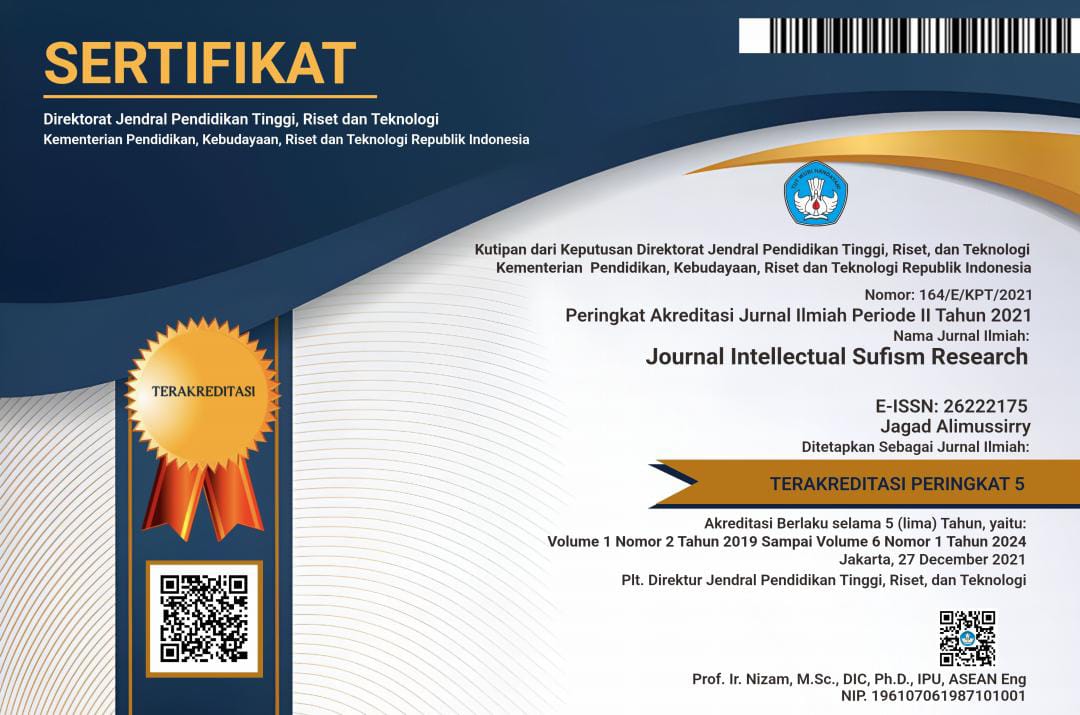A Literature Approach of The Story in the Qur'an (Study About Muhammad Ahmad Khalafullah’s Interpretation on the Story of Ashab Al-Kahf )
DOI:
https://doi.org/10.52032/jisr.v3i2.96Abstract
Al-manhaj al-adabi that is used by Khalafullah implies that the stories in the Qur'an not only is purely historical data, but it is also a narrative that could be included in literature that is loaded with the message contained in it. This literary method, according to him, is very appropriate to be used as a knife of analysis in uncovering the stories of the Qur'an. He said that the mistakes of the commentators so far lie in the methods that they use. They have involuntarily forgotten knowing the sociological and religious aspects of the message in the stories of the Qur’an. In his research, he emphasizes the psychological aspect, according to him, a story has a psychological impact due to it can explain the meaning of universal gloom and touch in the soul of his audience.
In the story of Ashab al-Kahf Khalafullah proves that the stories in the Qur’an are not merely historical data. Because this story historical elements such as characters, places and times tend to be eliminated. The Qur'an does not clearly state the number of young Ashab al-Kahf and the time they lived in the cave. The narrative of the story of Ashab al-Kahf which is meant to prove Muhammad's apostolate and as an answer to some of the questions of the polytheists of Mecca to Muhammad when testing the truth of his apostleship and teachings. Such narrative has a psychological impact on the listeners so that it can reveal the messages stored in it.













